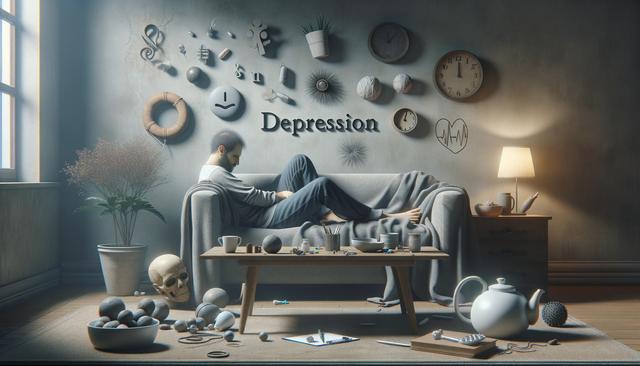Understanding the Signs of Depression: What to Look Out For
Recognizing the signs of depression early can make a significant difference in getting the right support and care.

Emotional and Mood Changes
One of the most common indicators of depression is a noticeable shift in emotional well-being. Individuals may start to experience persistent sadness, a sense of hopelessness, or a lack of interest in activities they once enjoyed. These emotional changes are more than just occasional bad days; they persist for weeks or longer and interfere with daily functioning. People might feel overwhelmed by even minor challenges and may struggle to find joy in friendships, hobbies, or work.
In addition to sadness, emotional signs can also include:
- Irritability, especially in teens and adults
- Feelings of worthlessness or excessive guilt
- Constant worry or anxiety that seems difficult to control
These mood-related symptoms can sometimes be mistaken for personality traits or temporary stress responses, which is why it’s important to observe duration and intensity. A mental health professional can help differentiate between temporary emotional states and clinical depression.
Changes in Sleep and Appetite
Depression often disrupts basic physical functions such as sleep and appetite. These changes may manifest differently in each individual. Some people may experience insomnia, struggling to fall or stay asleep, while others may find themselves sleeping excessively without feeling rested. Sleep disturbances are not just symptoms but can also contribute to worsening mood and energy levels.
Appetite changes are also common. These can include:
- Sudden weight loss due to lack of appetite
- Overeating or cravings for unhealthy foods
- Loss of interest in cooking or eating meals
When these changes persist and begin to interfere with daily life, they can be strong indicators of depression. Monitoring these physical signs, especially when accompanied by emotional symptoms, can help in seeking timely intervention.
Decreased Energy and Fatigue
Fatigue is more than occasional tiredness; in the context of depression, it is a persistent lack of energy that does not improve with rest. Individuals may find it difficult to complete daily tasks, from household chores to job responsibilities, due to overwhelming exhaustion. This can further reinforce feelings of guilt or inadequacy, creating a cycle that is difficult to break without support.
Some related signs of fatigue in depression include:
- Difficulty concentrating or making decisions
- Slowed speech or movements
- Loss of motivation to start or finish tasks
This lack of energy is not always visible to others, which is why many people with depression may appear to be functioning on the surface while struggling internally. Recognizing this hidden symptom is key to understanding the full impact of depression.
Social Withdrawal and Isolation
Another significant sign of depression is withdrawing from social interaction. People may begin to avoid friends, family, and activities they once found enjoyable. Social withdrawal is often fueled by feelings of inadequacy, fear of being a burden, or a lack of energy to engage with others. Over time, isolation can worsen depressive symptoms and may even lead to a greater risk of self-harm or suicidal thoughts.
Signs of social withdrawal can include:
- Declining invitations or making excuses to avoid gatherings
- Reduced communication with loved ones
- Spending excessive time alone without engaging in meaningful activities
Understanding the reasons behind social withdrawal can help friends and family approach their loved ones with compassion instead of frustration. Offering consistent, non-judgmental support can make a meaningful difference.
Physical Symptoms and Health Complaints
Depression doesn’t only affect the mind—it can also have a profound impact on the body. Many individuals with depression report unexplained physical issues that do not respond well to typical treatments. These physical symptoms are real and should not be dismissed, as they often indicate underlying mental health concerns.
Common physical complaints associated with depression include:
- Chronic aches and pains
- Digestive issues without an identifiable cause
- Headaches or tension in the neck and shoulders
In some cases, these symptoms lead individuals to seek help from medical professionals, not realizing that the root cause may be depression. A holistic approach that includes mental health evaluation can be crucial in such scenarios. Being aware of the physical manifestations of depression helps in identifying the condition even when emotional symptoms are less apparent.
Conclusion: Recognizing the Signs to Support Better Mental Health
Recognizing the signs of depression is the first step toward getting help, whether for yourself or someone you care about. Depression can affect anyone, regardless of age or background, and its symptoms are not always obvious. By understanding the emotional, physical, and behavioral indicators, individuals and communities can respond with greater empathy and effectiveness. If these signs are present and persistent, seeking guidance from a qualified mental health professional is a vital move toward recovery and well-being. Early intervention can lead to better outcomes and a more supported path to healing.